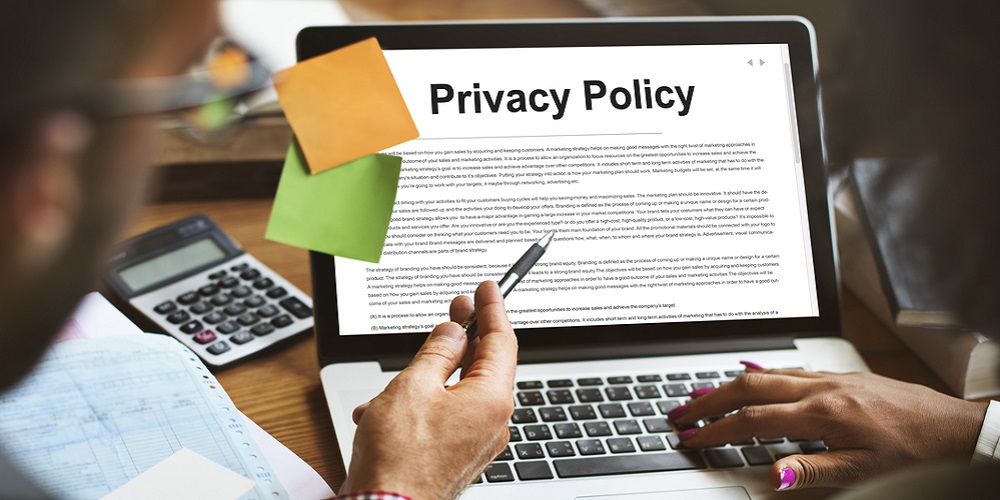[ad_1]
Platforms providing traders with the opportunity to exchange cryptocurrencies have increasingly started to apply registration requirements. In many cases, these are justified on the basis of newly introduced KYC and AML regulations. Thankfully, there are still exchanges that allow users to swap digital coins without requiring a verified account.
Also read: Coinsquare Lays off 40 Employees in a Troublesome Month for Crypto Exchanges
Losing the Balance, Again
The question regarding the balance between privacy and transparency predates the birth of Bitcoin. Decentralized digital currencies came into existence partly as a response to the trend of economies and societies moving in a cashless direction, which threatened privacy. In a way, they reintroduced the concept of cash, with its relative anonymity, into the digital space, and not at the full expense of transparency per se.

This new balance has been challenged. Crypto exchanges nowadays find themselves caught in the crossfire between what many of their customers want in terms of privacy, and what regulators require them to do to limit it. Identity verification makes some sense in the case of crypto-to-fiat transactions, for tax purposes or to prevent illicit activities. But crypto-to-crypto transactions have also become a target and it’s not clear why – many countries, like Poland for example, exempt them from taxation.
Leading crypto exchanges operating in the U.S., Europe and globally are now collecting personal information from traders. This is sometimes done through loyalty programs that come with certain benefits and is often justified with the need to comply with new KYC and AML rules. These requests are usually accompanied with promises to protect the collected data. Critics have warned, however, that the risk of your sensitive info ending up with other vendors, being lost to hackers, or shared with some government, not necessarily your own, remains high.
Some crypto trading platforms have recognized the concerns of cryptocurrency users and offer services that are filling the gap left by established exchanges such as Shapeshift. We reported about some of the available alternatives last fall. New ones have since started to gain popularity among crypto enthusiasts including the following selection.
Platforms That Respect Your Privacy
One such exchange is Godex. It offers fast cryptocurrency swaps between over 200 digital coins with no exchange limits other than the minimum amounts required to cover the fees. After choosing a pair, a fixed rate is displayed which is what the trader receives if the exchange receives the amount within 30 minutes. According to a Bitcointalk thread, the platform does not have a central office, and its team is based in Ukraine, the U.S., Italy and Russia.
Users are not asked to share any personal data, set up an account or pass mandatory registration. Providing an email address is optional for confirmations and communication with support. “As we stand for absolute privacy, we erase all transaction data from our servers within a week,” the exchange states on its website. It keeps a minimum amount of information needed to process refunds, for example. That includes the email, transaction hash and the sender’s address.

Changer.com is another crypto-to-crypto exchange that does not require an account, although it offers discounts for those who create one. If you don’t wish to do so, you can still exchange around 15 coins by providing an email. The trading platform offers its main page in a number of languages and controls two other domains – exchanger.com and the Russian obmen.com. There are mixed comments on crypto forums about its services, with most complaints related to support not answering emails on time.
Fairshift is an exchange that does not collect additional user data, except the information needed to process transactions related to a coin swap. No account is required to use the platform and “no personal info that can be stolen in the event of a hack or other compromise” is collected. Basic data about completed transactions, including refunds, can be seen in the “Past Transactions” section of Fairshift’s website.
Other sites offer limited privacy and conditional anonymity. Simpleswap, for example, says in its FAQ section “Yes, our service is anonymous.” Yet the online exchanger notes that there are exceptions. “Simpleswap collaborates with many partners. Our partners, according to their risk assessment and European AML directives, can apply for a photo of your ID valid in your country and information about the origin of your coins,” the platform explains without specifying the names of its partners.
Then there’s Coinswitch, an exchange aggregator that supports trades between more than 300 cryptocurrencies through integration with many leading exchanges such as Bittrex, Kucoin, Idex, Hitbtc, Shapeshift and others. Before placing a trade, however, users are required to register an account and provide name, date of birth, and country of residence, phone number and a valid email address. Only the last two entries have to be verified however.
Which privacy-oriented crypto exchange do you recommend? Tell us in the comments section below. Share your thoughts on the subject.
Images courtesy of Shutterstock.
Disclaimer: Bitcoin.com does not endorse nor support these products/services.
Readers should do their own due diligence before taking any actions related to the mentioned companies or any of their affiliates or services. Bitcoin.com is not responsible, directly or indirectly, for any damage or loss caused or alleged to be caused by or in connection with the use of or reliance on any content, goods or services mentioned in this article.
[ad_2]
Source link
